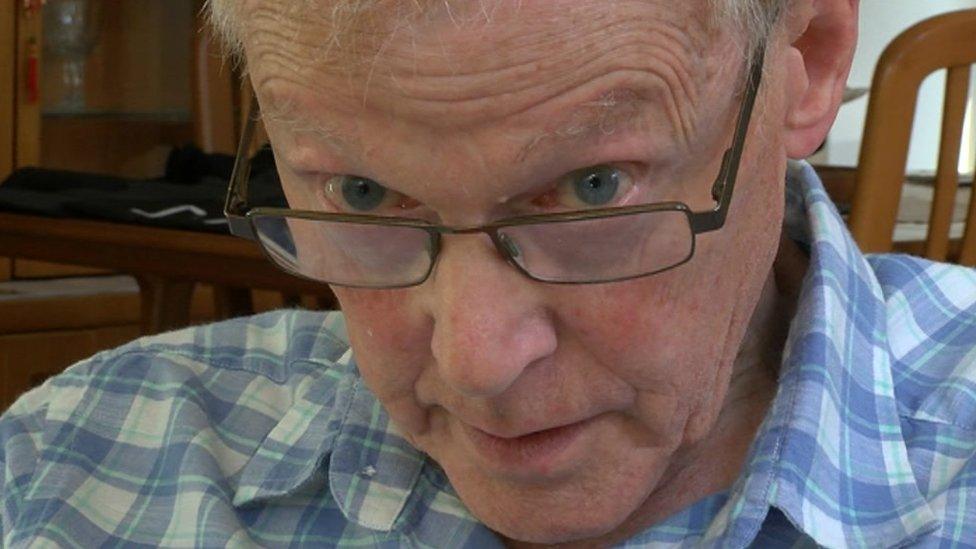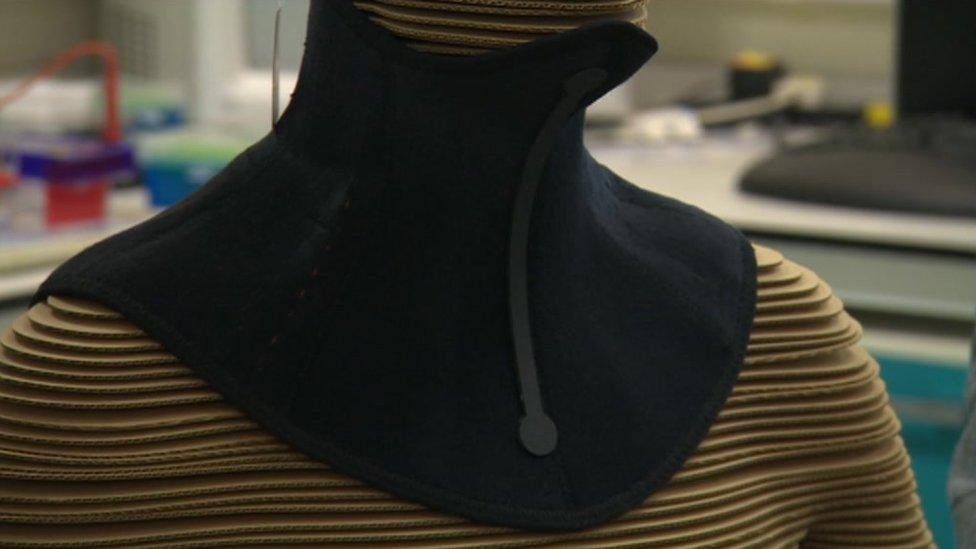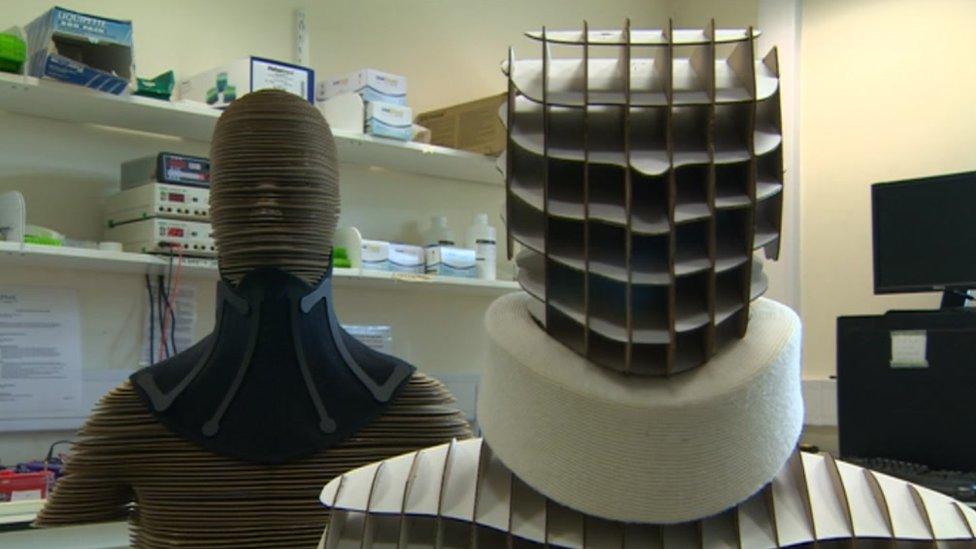New motor neurone brace makes 'substantial difference'
- Published
Philip Brindle says his quality of life has improved
A new neck brace for people with motor neurone disease (MND) makes a "substantial difference" to their quality of life, a patient has said.
The disease causes muscle wasting, eventually leaving people with the condition unable to support their head.
MND patient Philip Brindle said the collar, designed in Sheffield, "opened up opportunities that I do not think I would have had otherwise".
The device is now being used by 25 NHS Trusts, according to its designers.
MND is a progressive and terminal disease that damages the function of nerves and leads to muscle wasting and mobility problems, among other symptoms.
It affects up to 5,000 adults in the UK, according to charity the MND Association.
Dr Brian Dickie, director of research development at the association, said the collar has been "preferred by the majority of people who tried it".

Mr Brindle's MND has left him unable to hold his head up independently
Mr Brindle, 72, from Chesterfield, said since he was diagnosed with MND in 2015 his head had begun to drop and he did not want to be seen in public.
"I just do not have the strength to hold [my head] up anymore and that makes life extremely unpleasant," he said.
"You can't read, you can't watch TV, you can't have a conversation with anyone and you can't eat or drink with your head in that position."

The Head Up collar is made from the same material used in space suits
The new collar was designed by researchers at the University of Sheffield and Sheffield Hallam University, together with patients and clinicians at Sheffield Teaching Hospital.
It has a soft fabric base, made from a material used by NASA to make space suits, on to which a series of shaped supports can be added to provide additional stability.
Chris McDermott, professor of Translational Neurology at the University of Sheffield, said patients would previously have been given soft foam collars designed to treat sprained necks or rigid, plastic braces used for trauma victims, but would rarely wear them.
He said: "MND is an awful disease and what we need is a cure for it, but while we're waiting for a cure we have to do our best to improve the quality of the lives of people living with this condition, and this is a small part of doing that."

The collar has been designed provide patients with a combination of movement and support and to replace existing models
Mr Brindle said the new collar had "freed me up to have a much more normal life".
"The quality of my life has been substantially different as a result of this collar, there's no doubt about that," he said.
- Published20 April 2018

- Published1 June 2016
